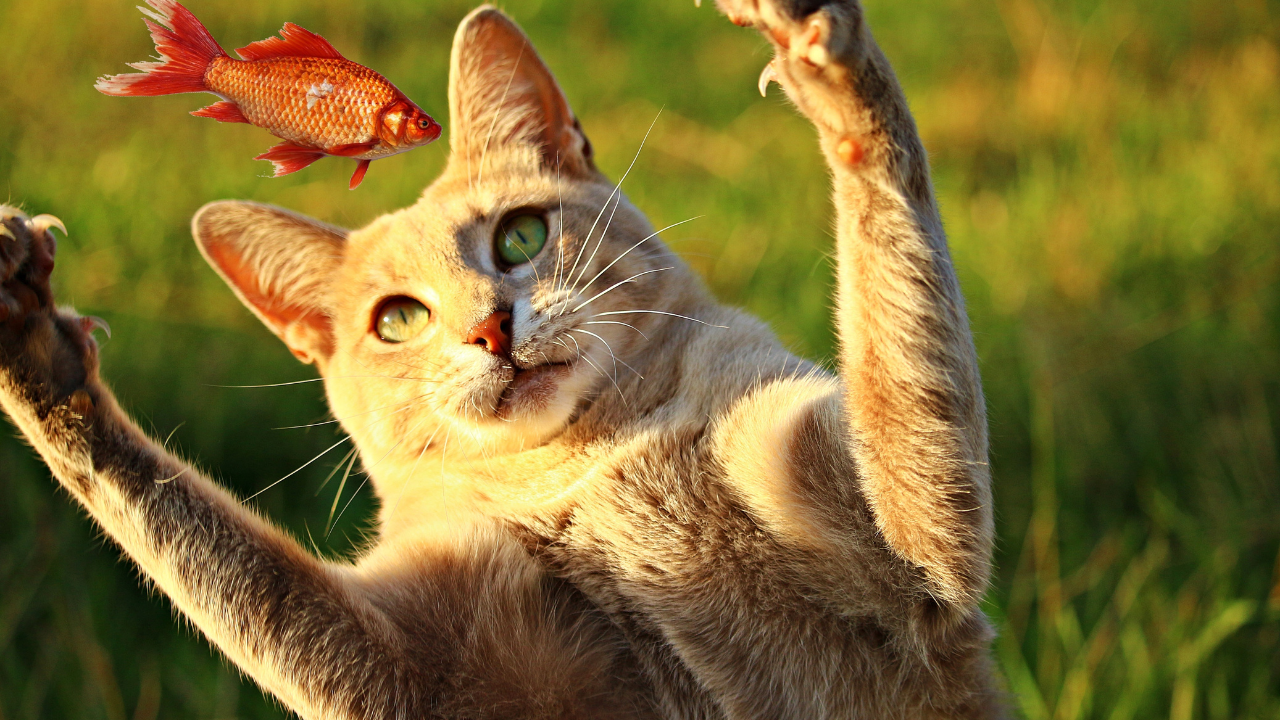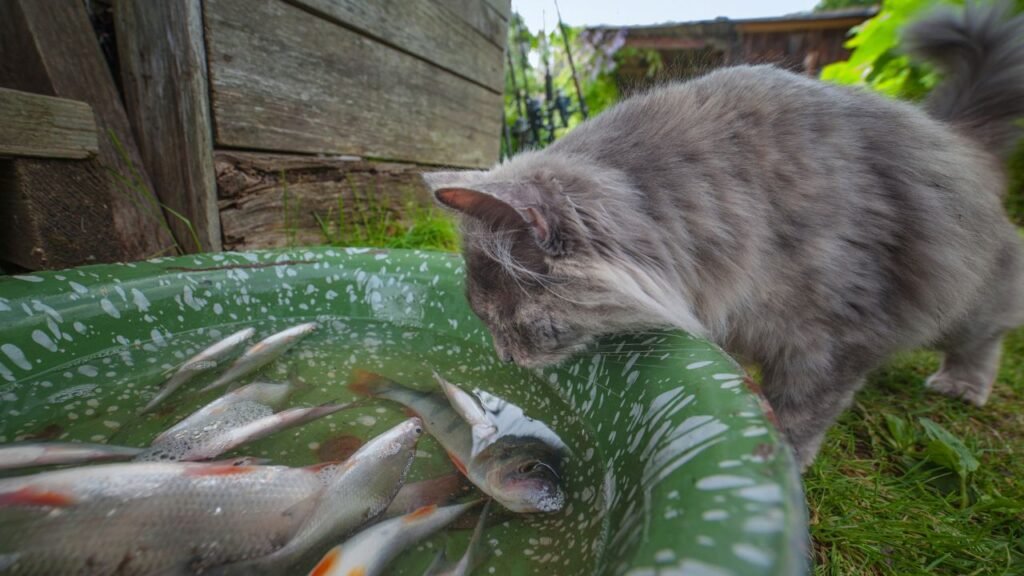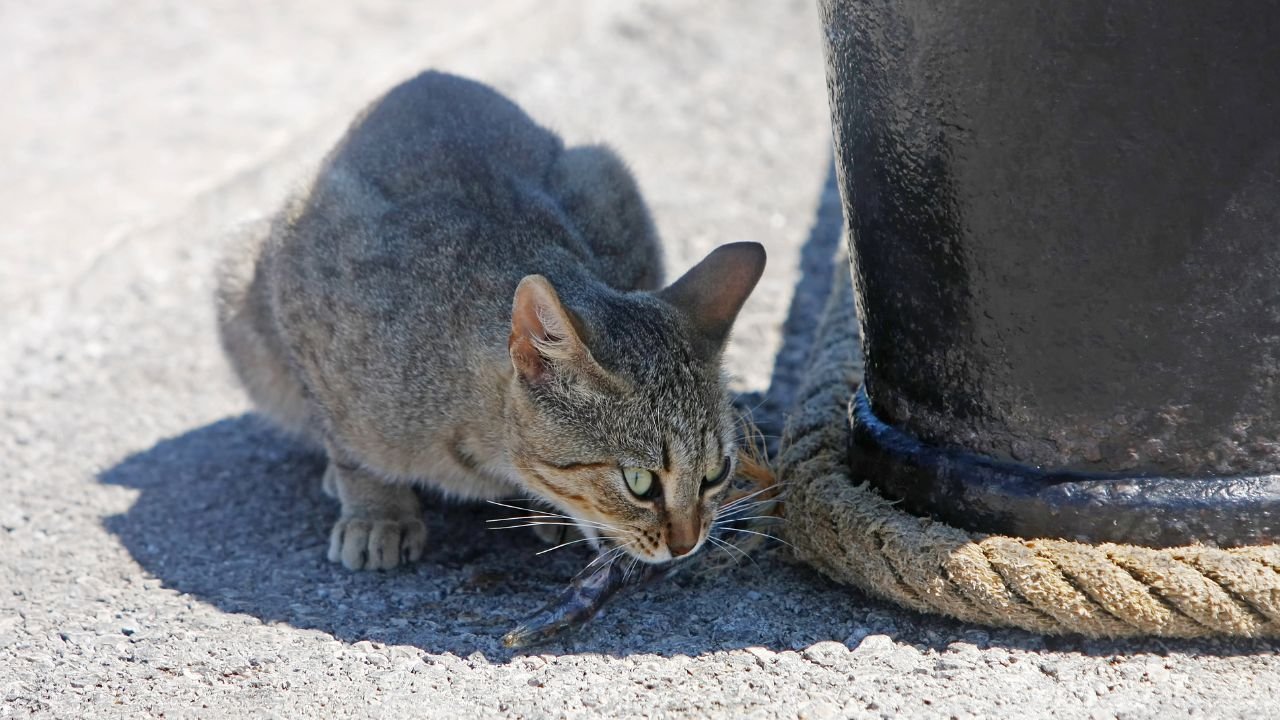Can a cat eat fish? That is a very common question and the answer isn’t as clear-cut as “Yes.” It’s not that straightforward, because the answer depends on both the nature of your cat and which fish you are feeding your beloved pet. Turns out that feeding cats fish can be beneficial for some, but for others, it could create more damage than good.

Cats are obligate carnivores, meaning that their bodies are programmed to digest meat. So in order to keep your cats healthy, it is important that they have a diet that includes protein from animal sources.
Although fish is full of healthy proteins, it is not typically considered one of the best meat sources for cats. While they can eat canned or cooked fish occasionally in small amounts, it is not something they should have on a regular basis because their digestive systems do not function well when they consume too much protein from animal-based sources.
Can Cats Eat Raw Fish?
No – Raw fish can contain bacteria that are bad for cats, so they should not be fed uncooked fish. Bacteria can cause food poisoning in your cat. Coli and salmonella are examples of two dangerous bacteria that can harm cats.
If you are going to feed your cat fish, be sure it has been fully cooked and does not contain any dangerous additives, seasonings, or flavorings.
Another nutritional issue is that the enzymes in raw fish might degrade the vitamins included in the fish. This means that properly cooked fish will provide more vitamins to your cat than raw fish.
Can Cats Eat Fish Bones?
Certain bones in cooked meat, such as those found in fish and poultry, might splinter and cause oesophageal damage. Cooked fish bones should be removed before serving since they can harm or block your cat’s throat or gastrointestinal tract.
At the same time, most cats have no problem ingesting bones, and if they become trapped, they vomit.
Fishbones are less likely to pose a problem when feeding fish that are the suitable size since the fish bones are too little to become caught in the first place.
Is your cat being messy and not using its litter? Then Read How to Litter Train a Cat or click the image below:

Can Cats Eat Canned Fish? Can Cats Eat Commercial Fish Containing Cat Food?
First and foremost, any commercially available product having fish as its primary source may not use the best quality fish at all. You can give them as an occasional treat but be cautious.
Why Commercial Fish Products Can be Harmful to a Cat?
- Kidney and Urniary Tract Issues: These type of fish typically contain ground-up bones, guts, and other unappealing fish pieces that are high in nutrients like magnesium and phosphorus. If your cat consumes too many of these minerals, it may develop kidney problems or urinary tract problems.
- Allergen: Low quality fish can become an allergen for your cat, causing frequent vomiting or loose stools.
- Hyperthyroidism: Polybrominated Diphenyl Ethers (PBDEs), which are found in some canned cat food, may be contributing to the rise in feline hyperthyroidism. PBDEs are flame retardants that are widely used in construction materials, furniture, carpeting, and textiles. Feeding fish-flavored snacks just increases the exposure to poisons that are already prevalent in the cat’s environment.
High concentrations of PDBEs are found in fish towards the top of the food chain, such as tuna and mackerel, two proteins commonly utilised in fish-flavored cat food.
What Kind of Fish Can Cats Eat?

Fish is a nutritious food for humans, and it can be a healthy treat for your cat too. Salmon, sardines, tuna, trout, and herring are popular choices among cat owners as they contain essential nutrients and omega-3 fatty acids that can help improve skin health, fight allergies, and even reduce occasional shedding. These types of fish also typically have lower mercury content than larger predatory fish.
Can Cats Eat Salmon?
Although salmon includes plenty of protein, omega 3 fatty acids, and elements that are beneficial to cats, it should not be the primary source of protein in your cat’s diet.
The preparation of salmon for your cat is important. The nutritional quality of salmon is likely to be diminished if it has been deep-fried or cooked at a high temperature. Salmon that has been roasted, grilled, or poached is a healthier option for your cat. Seasonings of any kind should not be used.
It’s also critical not to feed your cat canned, smoked, or cured salmon, as they contain high quantities of salt, which can be toxic to cats and can cause death.
Concerned about what other type of food your cat can eat? Then Read Can a Cat Eat Eggs? Are Eggs Good for Cats? Raw/Cooked Eggs? or click the image below:
Can Cats Eat Tuna?
Cats love tuna, but it contains high levels of mercury, and a diet high in tuna can result in your cat having mercury poisoning. Tuna, as a predatory species, accumulates greater levels of heavy metals and poisons and should not be consumed in large quantities.
Tuna includes proteins, amino acids, antioxidants, and vitamins that are beneficial to your cat and hence safe to consume in tiny amounts.
But, before you give your cat tuna, take the following precautions:
- The tuna should be prepared; never feed raw tuna to your cat.
- Canned tuna is not the ideal option since, despite being prepared, it lacks the critical elements your cat requires.
- Choose tuna in water or brine over tuna in oil because oil is fattening and unhealthy for your cat to consume.
- Feed tuna in modest amounts and keep an eye on your cat to see if they have any ill reactions.
Summing All Up
The bottom line is that there is no harm in trying to offer foods like fish to your cat, but it can also be harmful if you don’t do so properly. The best way to approach this is by knowing what type of fish your cat can eat and then going ahead and adding just a little bit of the fish to its diet.
You can feed fish to your cat, but only in small amounts. For cats who like fish, it’s a good idea to indulge them with a wide variety of cooked fish, including tuna and salmon but in moderation. These fishes are high in protein and Omega 3 fatty acids which help keep your pet’s coat healthy and shiny.

